
The COVID outbreak and a culture of volunteerism in Thailand
Thailand is now at more than 2.1 million COVID-19 cases and 21,000 deaths. Those in need rely on volunteers to fill voids in the response efforts.
Bangkok, Thailand — It was almost dusk as a crowd of homeless Thai citizens began to emerge at Bangkok’s Ratchadamnoen Avenue. The group, with worn clothing and weary eyes, moved slowly through the street. They were on their way to receive food donations from the Issarachon Foundation, a nonprofit based in Bangkok to support the deeply impoverished.
At the front of the line, a foundation leader with a gentle expression encouraged those queuing up to stay strong despite the particularly hard times.
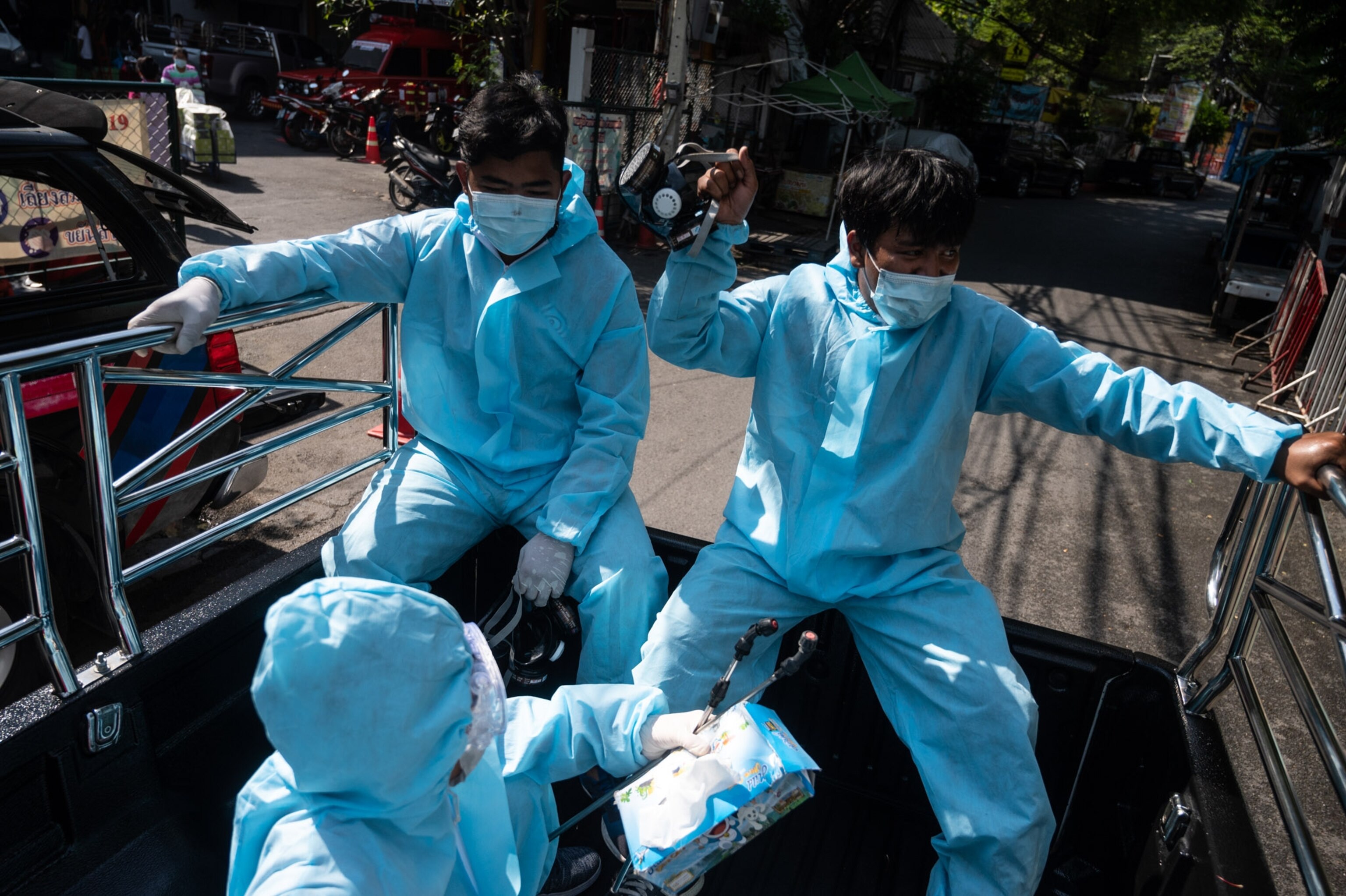
“You never know, one day we could turn out like them, or one day they could be in our position,” says Adchara Saravari, 33, the secretary general at Issarachon. “So when we help these people in need, we never judge them. They are citizens just like us, and they should be able to access normal services.”
Thailand is now at more than 2.1 million COVID-19 cases and 21,000 deaths. Some would argue that the surge in cases, which was at its worst in July, is the direct cause of the government’s sluggish vaccine rollout and lack of preparation when the Delta variant hit Bangkok.

But Thais have an unusual approach to solving problems—volunteering. It’s all about taking care of the community, a cultural tenet that helps explain why so many people in Thailand have chosen volunteering as a way to combat the effects of COVID instead of waiting on help from the government.
“In Asia we’re all taught to take care of the next person in the family,” says Tom Kruesopon, a prominent Thai entrepreneur. “We don’t live in towns or cities, we live in communities.”
Early last year, the COVID situation in Bangkok began deteriorating so rapidly that hospitals were running out of resources. Then this summer’s Delta outbreak led to a total shutdown of the Thai capital with strict lockdowns and restrictions. Hospitals were completely overwhelmed. Concerns are now rising again with the new Omicron variant, but its impact in Thailand is yet to be seen.
When the death rate started to climb, volunteers from varying backgrounds emerged to help people and save lives.
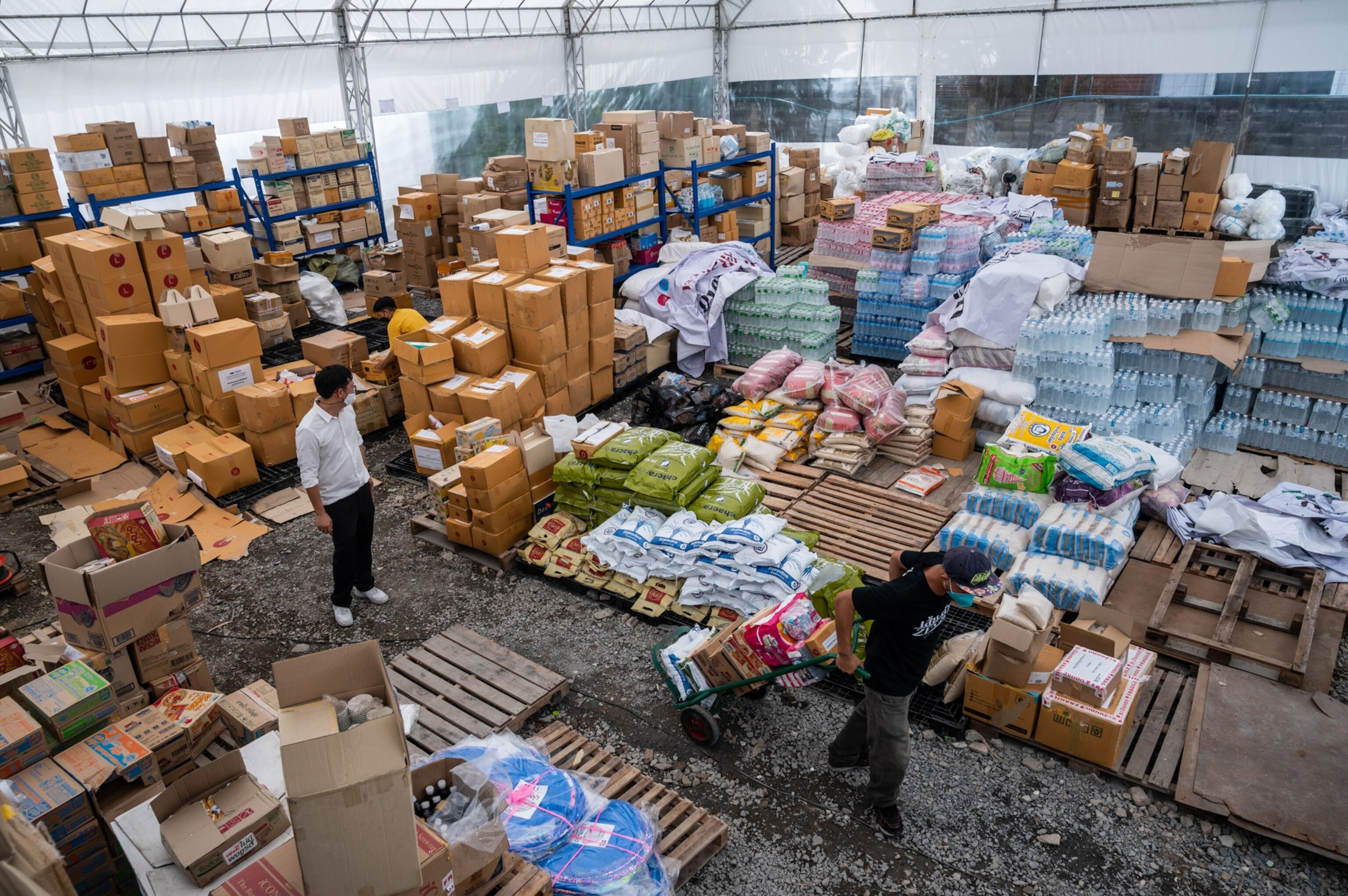
Helping the homeless
Adchara has been helping Bangkok’s homeless residents for 10 years. That population has always been high, reaching at least a few thousand throughout the city under normal circumstances.
But now Adchara is witnessing a spike in numbers like she’s never seen before.
“The number has doubled in this area from 300 to 600 homeless,” Adchara explained as volunteers distributed food. “The numbers have been going up all over Bangkok too. And because of COVID, temporary wanderers have now become full-time wanderers.”
She estimates that there are at least 4,500 homeless individuals throughout the capital, but the number is likely higher. Many living on the street don’t have ID cards, she says, while others suffer from serious mental health issues.
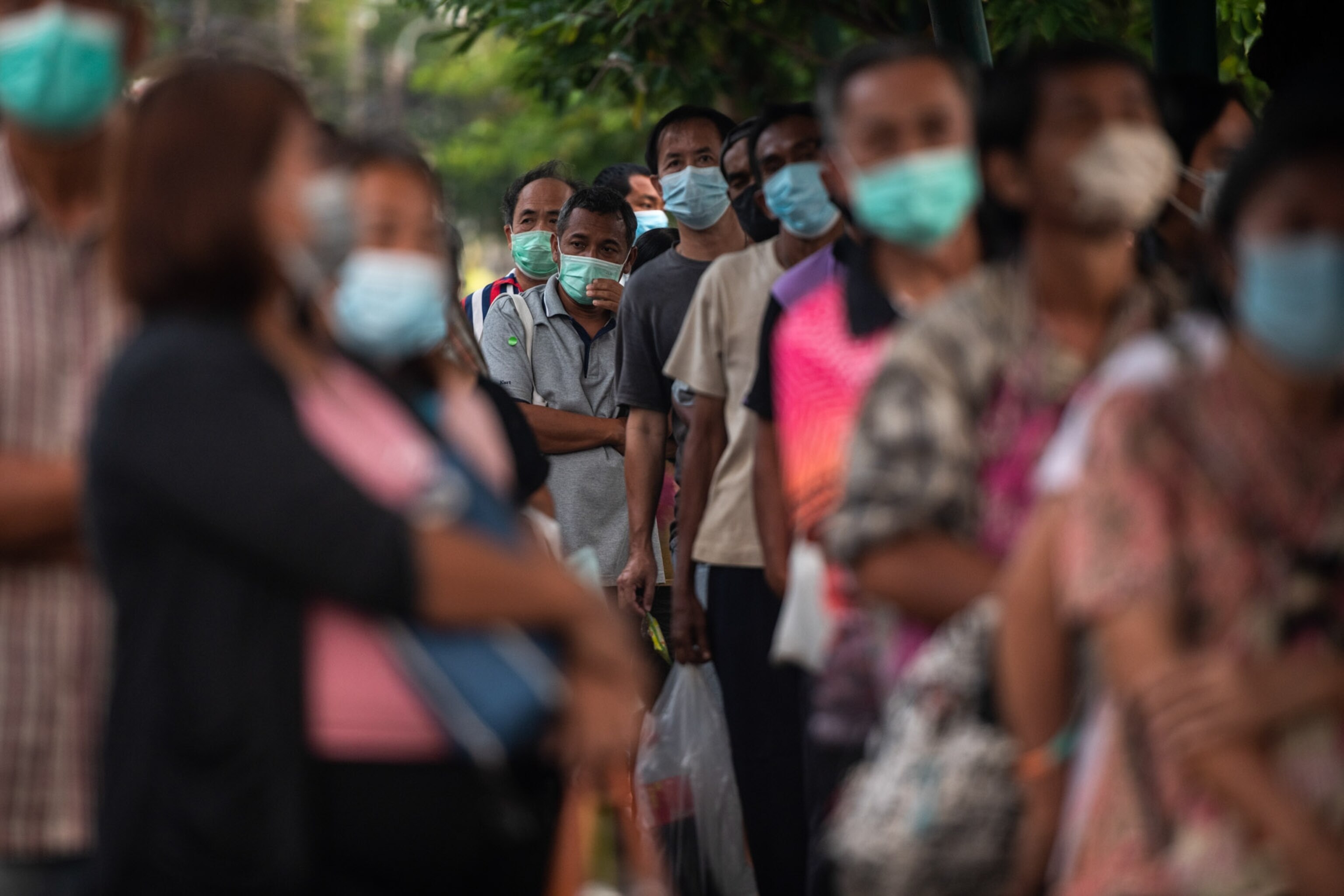
A small child approached the front of the line clutching her mother’s side.
“At least 5 percent of the population are children,” Adchara says. “So you can imagine the difficulty. They [the parents] often have no ID cards so they can’t access healthcare, no family who will help them, and some of them need to look after their children. These [factors] make finding a job nearly impossible.”
She says the Thai government simply hasn’t done enough to support this vulnerable group. When the pandemic began last year, the government offered small cash handouts to low-income Thais, but she says it’s done little to treat the source of their problems, such as creating an improved system to treat mental health issues or offering better government-funded housing.
“We have been asking the government [to improve] the nation’s welfare [system] for a long time,” Adchara says. They admit there’s a problem, “but even with COVID, they never do anything,” she says, adding that there wasn’t a cogent plan to offer assistance to those most in need when the virus hit Thailand.
“So we come here every Tuesday and offer food,” she says.
National Geographic made multiple requests to Thailand’s government spokesperson for comment, but the phone calls and emails were not answered.
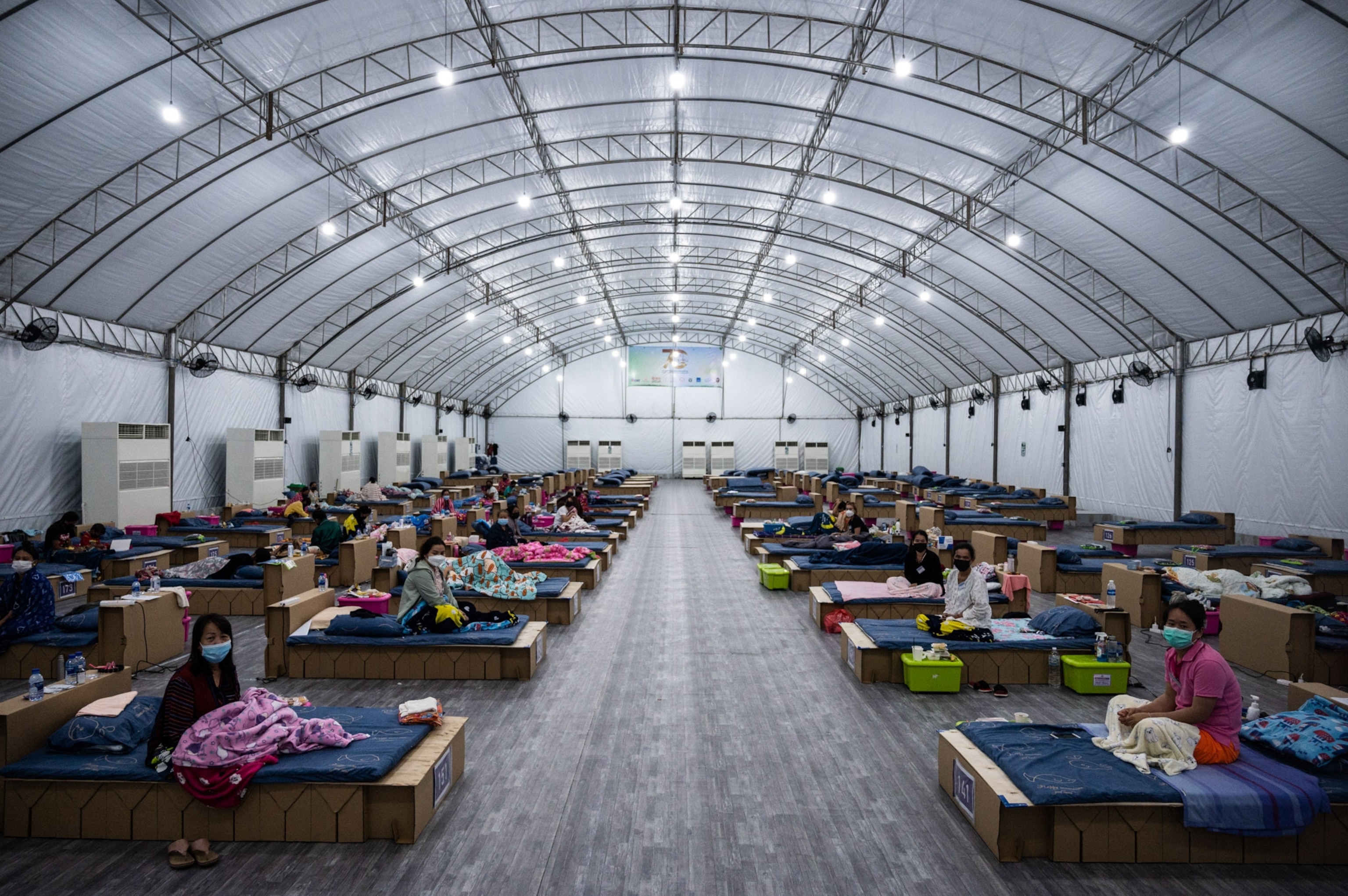
The Zendai warriors
As the van raced through Bangkok’s dark streets, Mamut Anusornweerachewin held on tight for balance. He was one of the volunteers gearing up in the back of the makeshift ambulance, while the driver navigated the city’s tungsten roads that night in September. They were only minutes away from another victim of the Delta variant.
Hitting the brakes, the driver pulled up to a small house as the volunteers, dressed in full protective equipment, burst out of the vehicle. It was around 9 p.m. when they approached the house. Entering quietly, they found a man in his mid-50s, paralyzed on his bed and struggling to breathe.
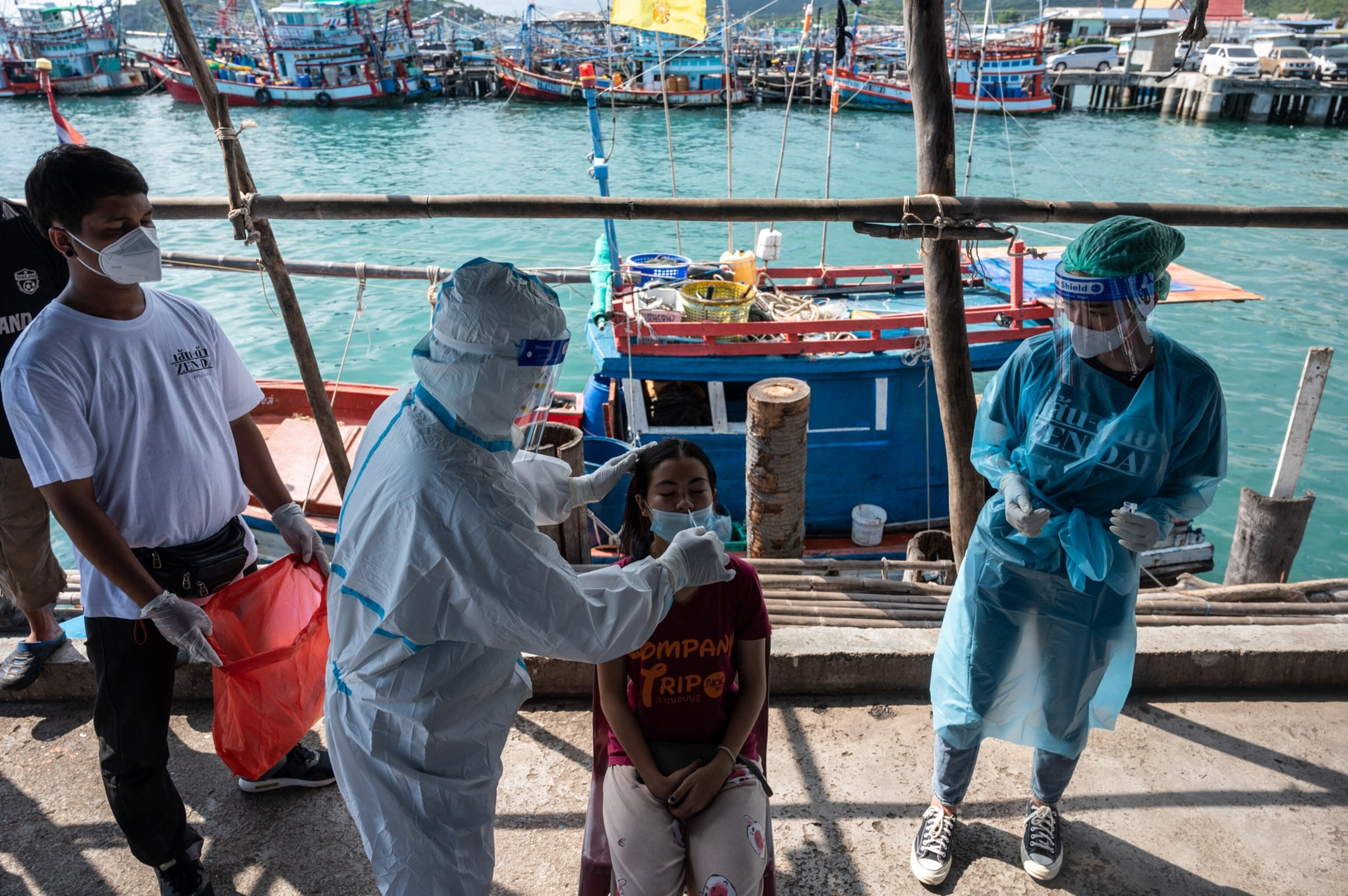
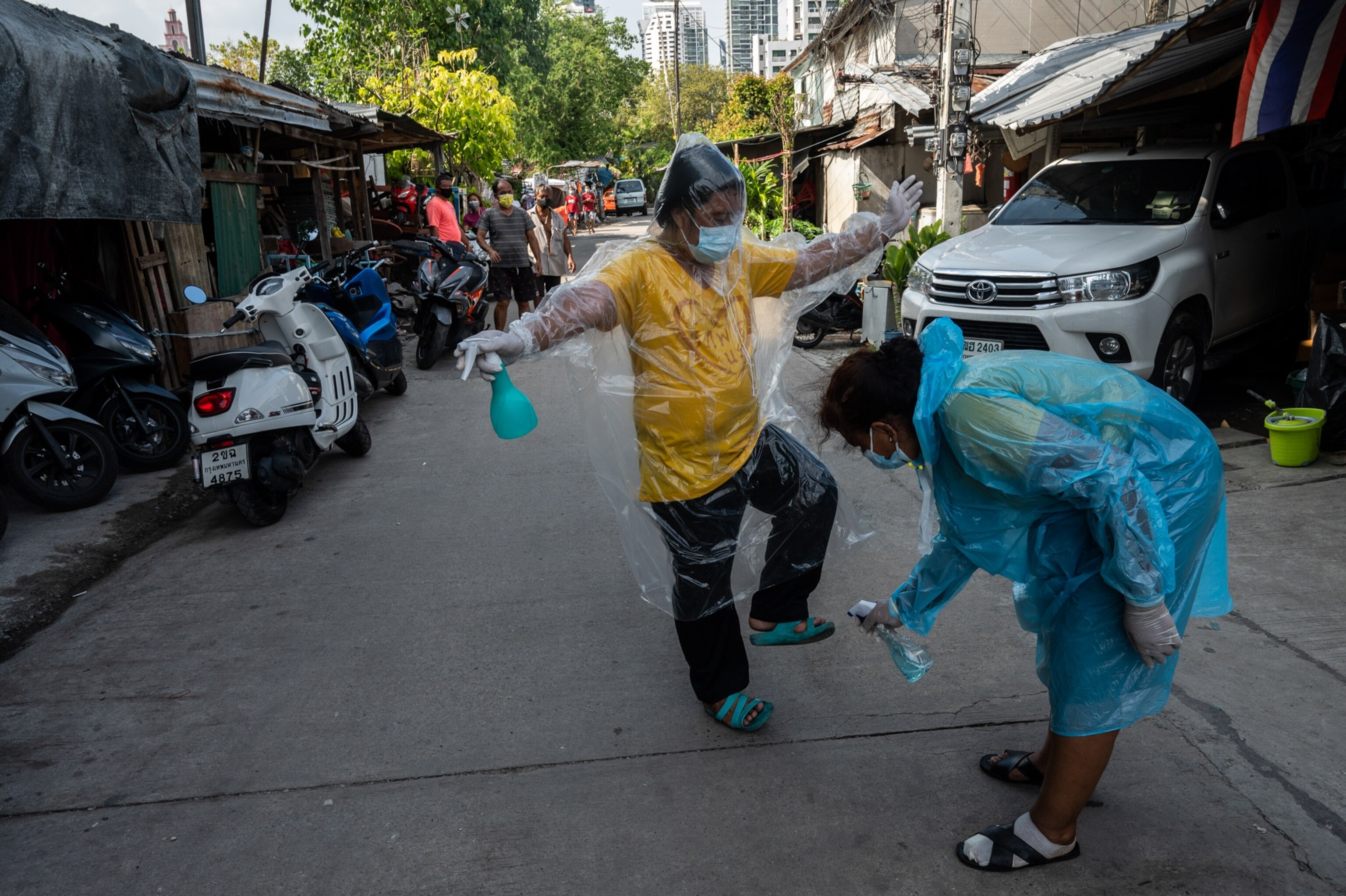
“Hello, how are you doing tonight? We are here to look after you now,” says Mamut, the 41-year-old ex-con turned volunteer paramedic. Mamut was imprisoned on drug trafficking charges almost 20 years ago. When he pleaded guilty, he dodged the death penalty but spent 15 years behind bars. Four years after being released, he has found himself as the lead paramedic for Zendai, a Bangkok-based volunteer group comprising dozens of people.
The team started checking the man’s vitals and discovered that his oxygen levels were dangerously low. Mamut signaled to a volunteer doctor who had accompanied them that night to inspect the sick man’s condition.
“I think the virus has entered his lungs,” the doctor told Mamut with a sense of urgency in his voice. “We need to take him to a hospital now.”
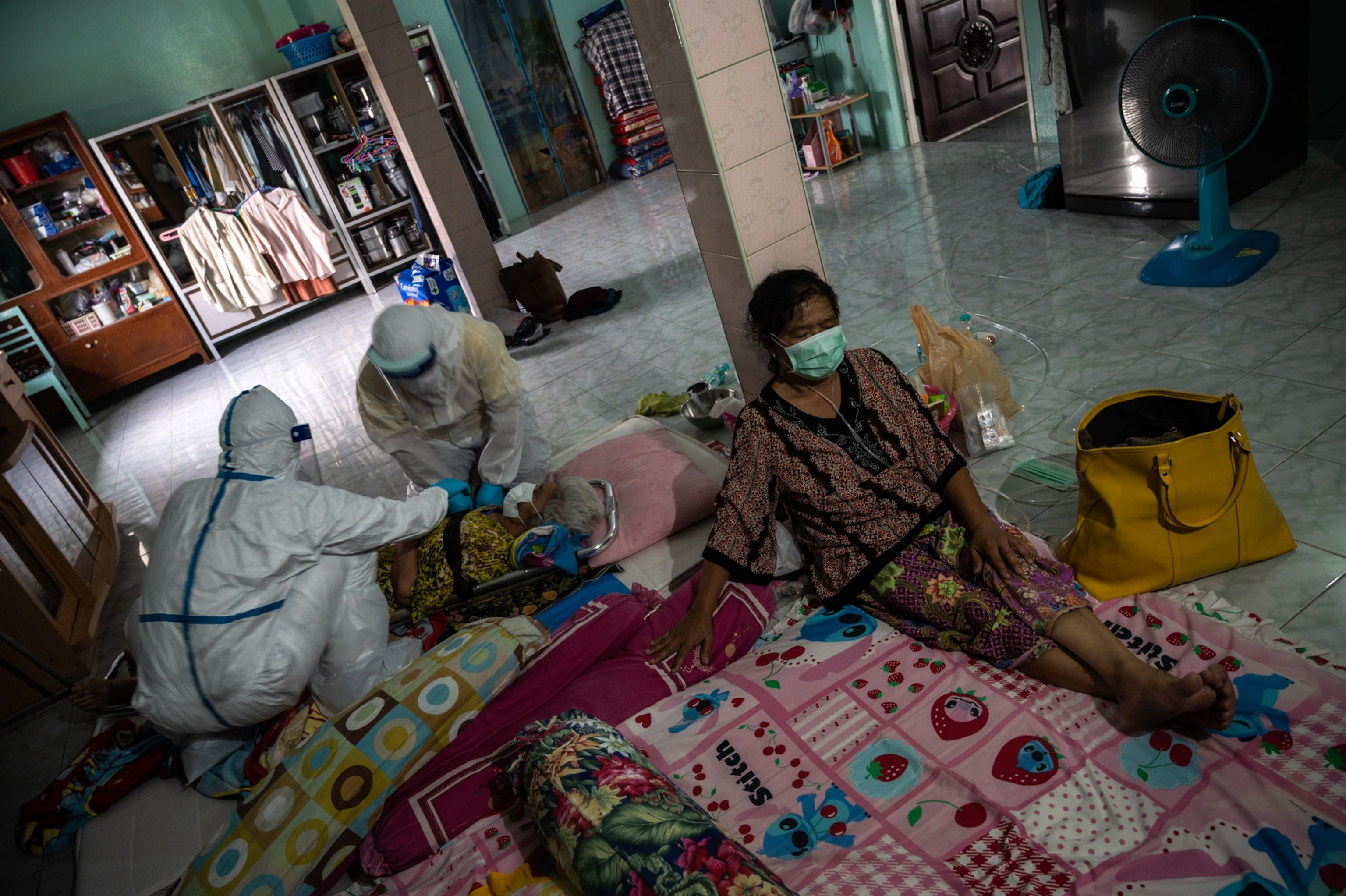
Back in July, every call was a matter of life or death.
“Every time they are on the verge of death,” Mamut says, explaining that they saw an average of six patients a night. “Many of them do die. I’ve had people die in my arms.”
Calls like this were a nightly occurrence in the Thai capital just three months ago. Back then, Mamut’s team was responding to at least 10 cases per night.
Founded in April, Zendai has since helped tens of thousands of COVID-19 victims. The group’s work has grown from helping the sick confined to their homes in isolation to finding beds for patients and now to distributing antiviral medication and conducting mass testing across the capital and other parts of country.
During those nights when he is out tending to those in need, Mamut says he can’t bear the thought of leaving anyone behind. He feels that the sick have been imprisoned by the virus, and he wants to set them free.
“In prison it was like I was dead,” Mahmut says. “And then somebody came and gave me life again. So this is what I want to do for them. It’s the best thing I’ve done since leaving those walls.”
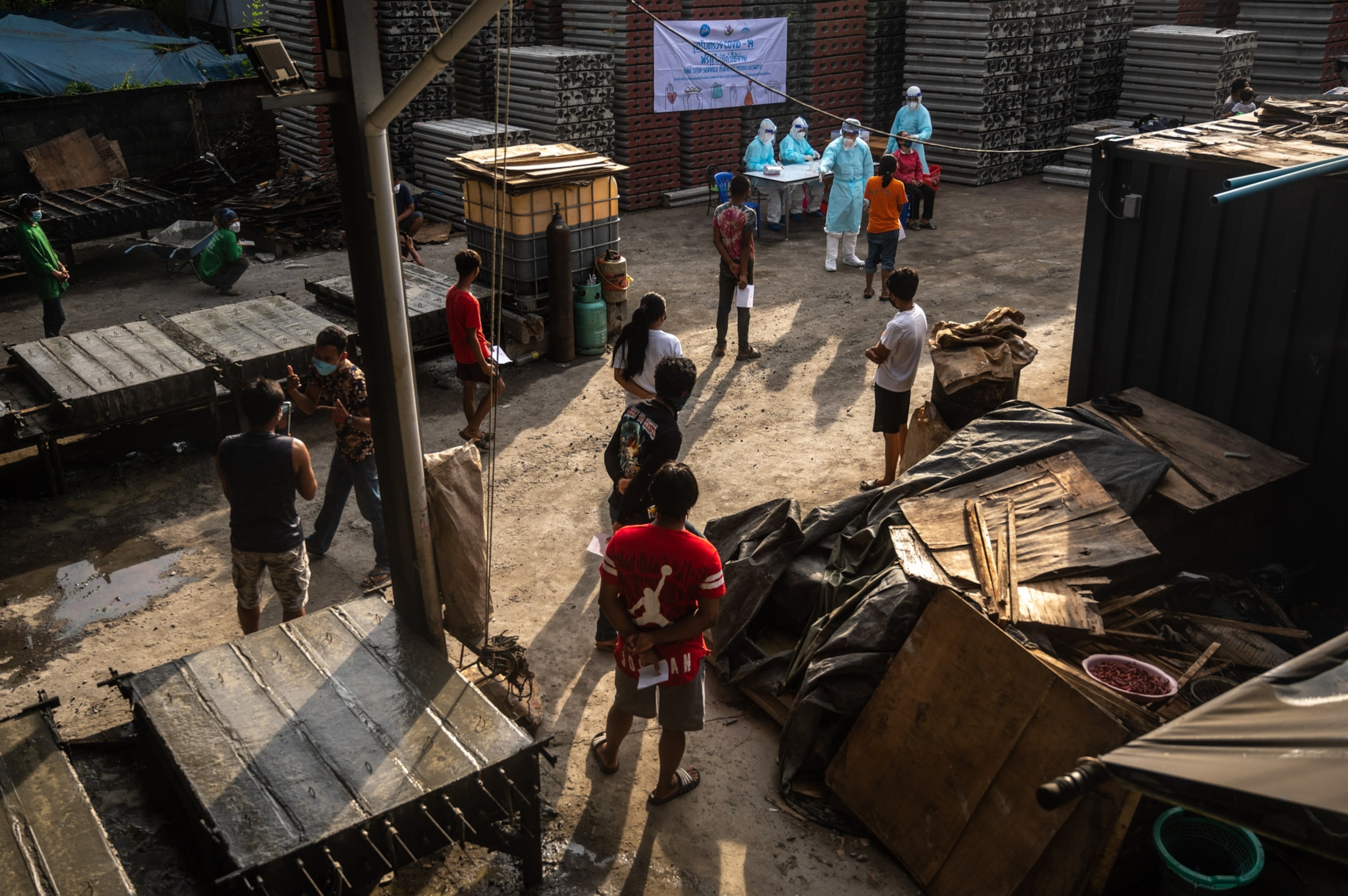
Rough trade
In the coastal town of Pattaya, a tourist-dependent city devastated by COVID-19’s economic fallout, Aunchanaporn “Anna” Pilasuta has become an unlikely hero.
“I guess everything in this world has an expiration date,” says the 40-year-old former sex worker from the entrance of “Walking Street,” a road once packed with tourists and buzzing with the sounds of nightlife.
Today, the street is completely quiet.
“How can you say the country is open?” Anna asked rhetorically, referring to the government’s decision to fully open up to vaccinated tourists at the beginning of October. She points to another long stretch of countless dilapidated bars.
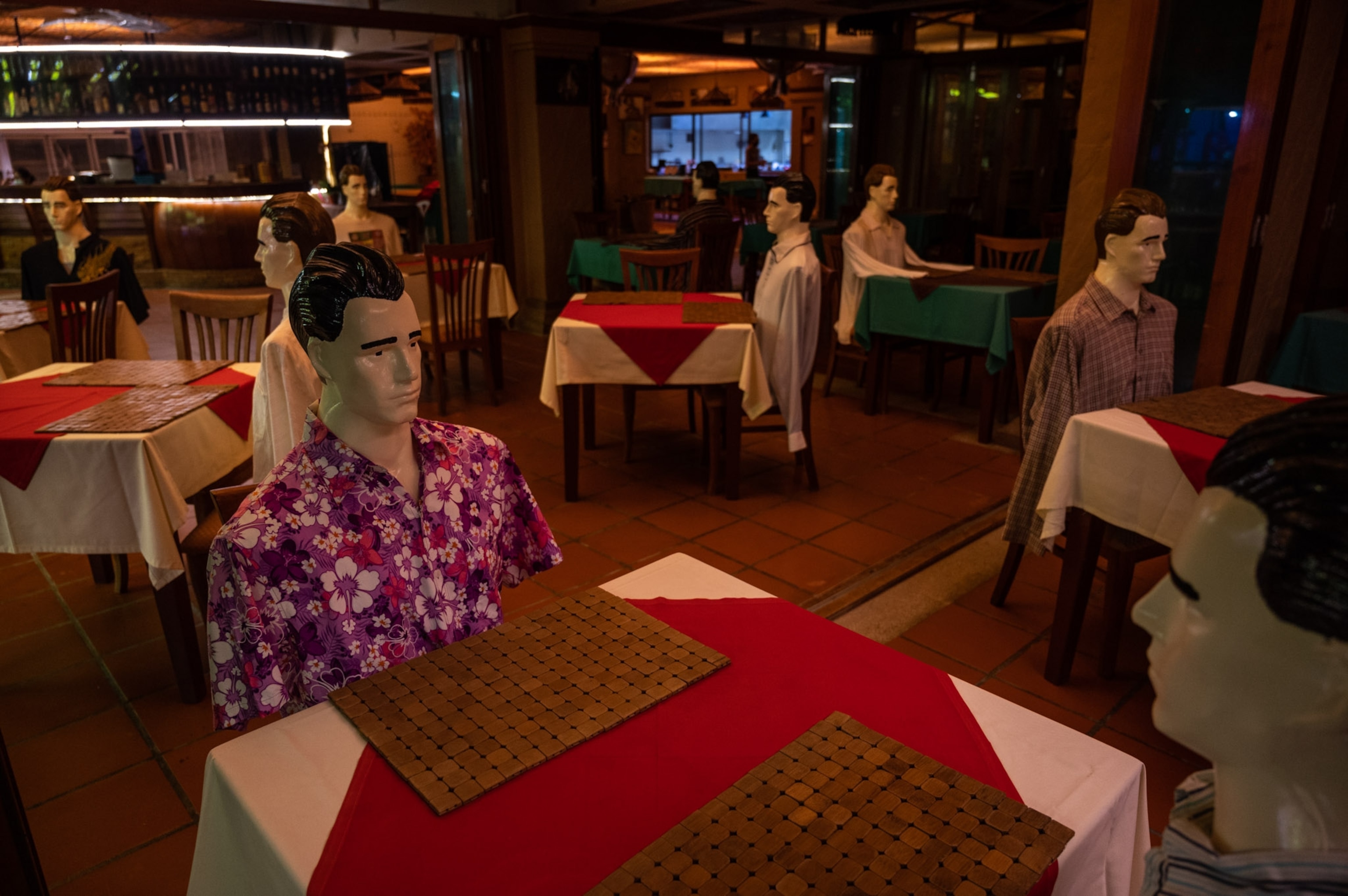
“Now sex workers have to change what they do to survive,” Anna added.
Nail salons, market stalls, and smoothie bars have sprung up as bars and restaurants have closed under new restrictions. “So many sex workers have moved to these shops now. Some just wait at the beach for customers. But it’s not enough. The government is not doing anything for us,” Anna says.
Over the last few years, Anna has served the town’s sex-working community by offering up crucial support as a volunteer for Service Workers In Group (SWING), an organization based in Pattaya that offers health services and therapy and promotes human rights for all sex workers. While prostitution is technically illegal, it has long been a significant presence and a tourist draw.
The tourism industry is one of Thailand's main economic sectors, accounting for 6-7 percent of its GDP in 2020. Now some Thai sex workers have been pushed to homelessness as well.
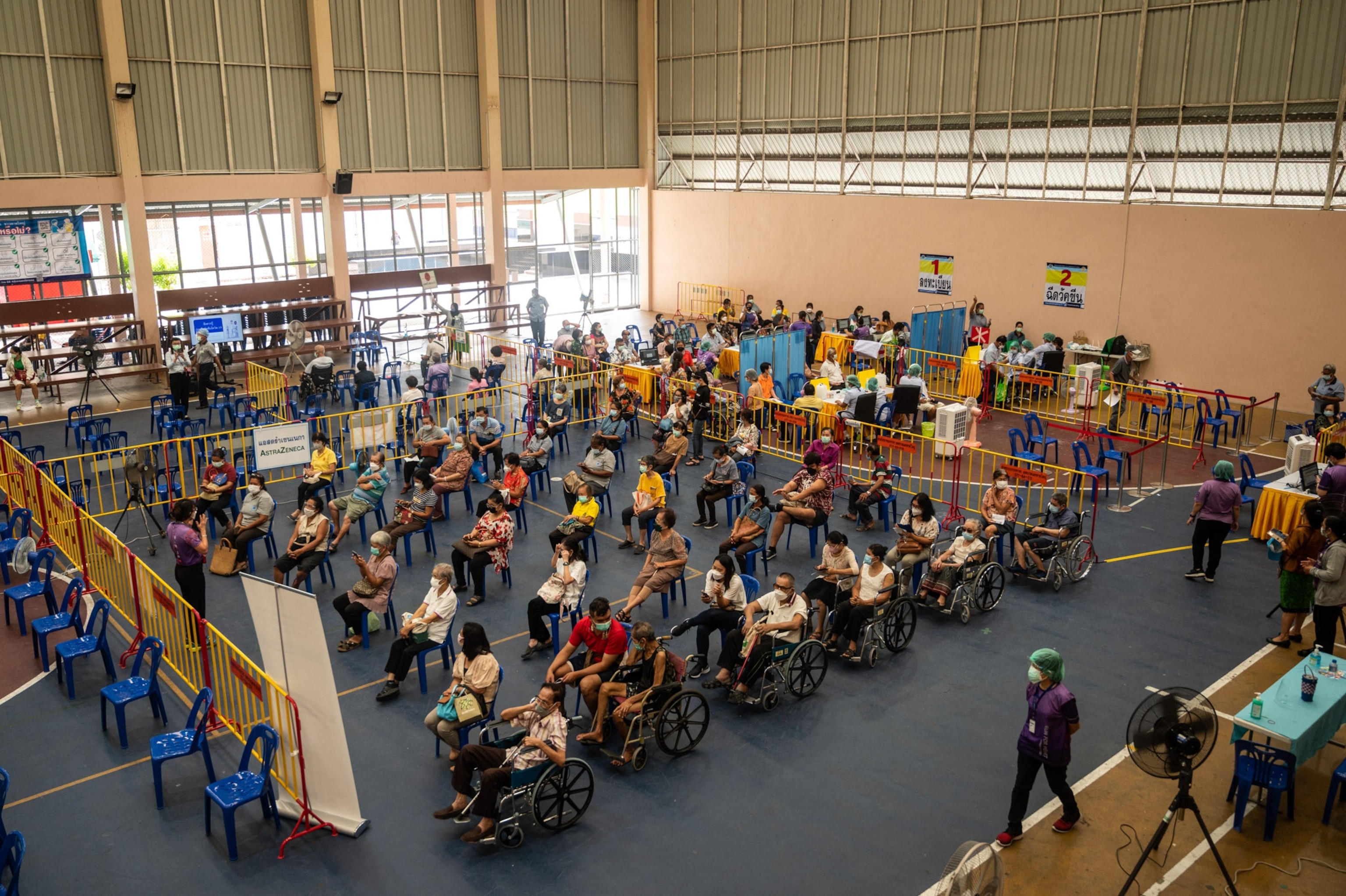
Government complacency
Kruesopon, who has close connections to Thailand’s Ministry of Public Health, says that the government’s failings were due simply to complacency.
“The problem was Delta came way too quickly,” Kruesopon says.
When things were at their worst in July, the country reported at least 20,000 COVID cases a day with an average of 150-200 daily fatalities. This was a significant hike compared to last year, when daily cases often averaged in the single digits and deaths were rarely reported.
Thitinan Pongsudhirak, a Thai political scientist and prominent intellectual who has devoted much of the past year to analyzing what went wrong, says the government is more than just negligent, but willfully incompetent.
“In Thailand it is not uncommon for complacency to become a curse,” Thitinan says. He agrees with Kruesopon that the government did a good job in 2020 of keeping numbers low, but they started to rise early this year after officials put too much faith in their ability to manufacture their own Astrazeneca vaccines. They did not foresee that the Delta variant would hit the country exceptionally hard.
“And then there was this resurgence in cases,” Thitinan says. “So they got stuck. Astrazeneca was not in the pipeline as they thought, and then Delta wreaked havoc. So the complacency came back to haunt them.”
“People on the ground had to help themselves,” he says. “The real heroes today are the public health volunteers who are working tirelessly to take care of their communities.”
Back in Bangkok, Adchara’s efforts to find solutions for the city’s homeless residents continue. It’s going to be a long struggle. “The government views them as a lost cause,” she says. “That’s why we’re trying to solve the long-term issues even after the pandemic improves.”
Like other Thai volunteers, Adchara doesn’t consider herself a hero; she simply knows that the work has to be done.